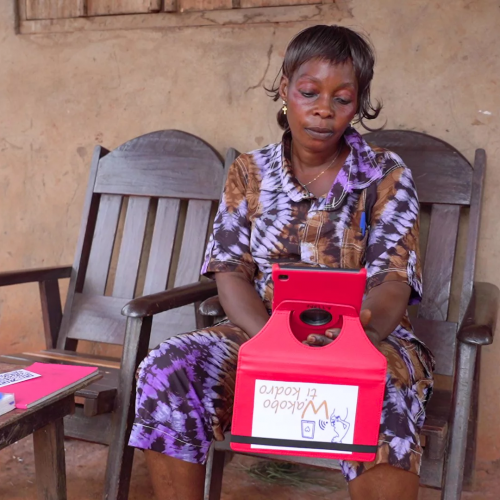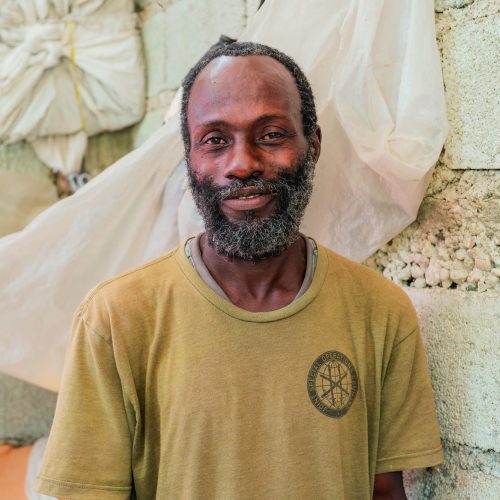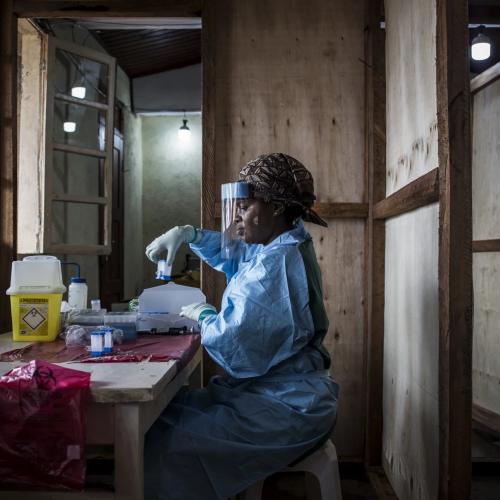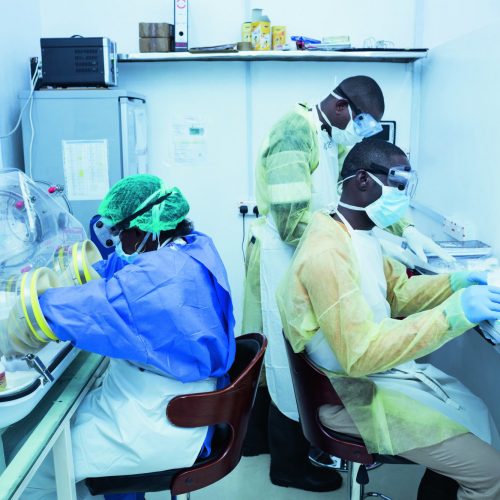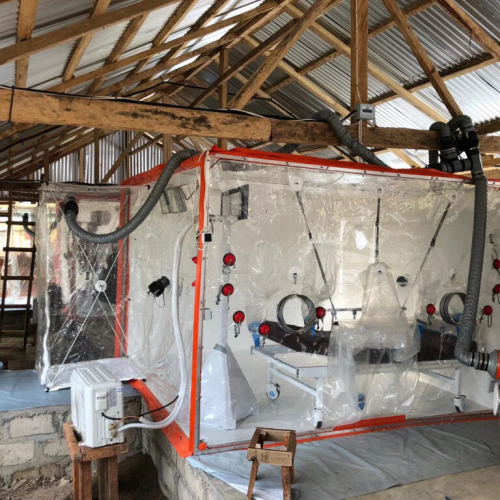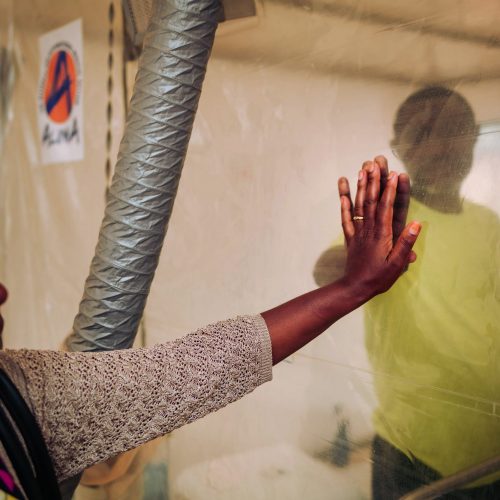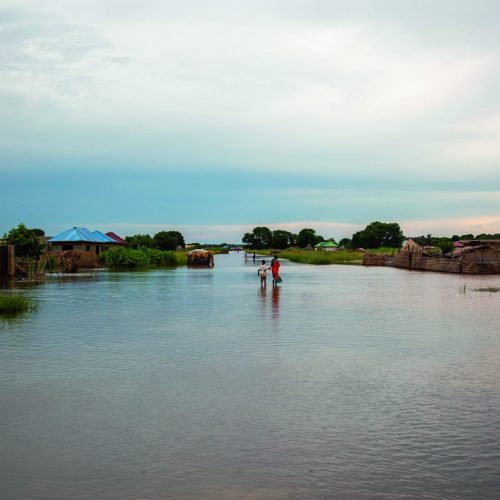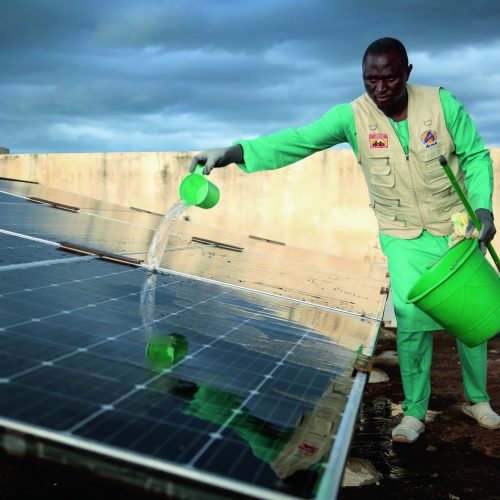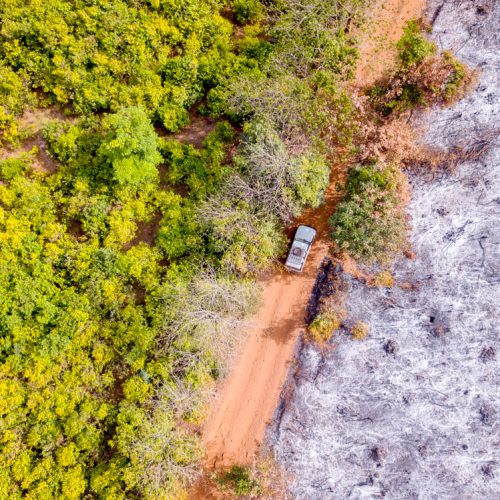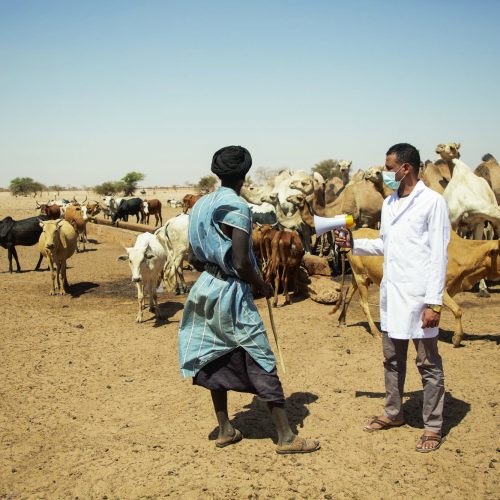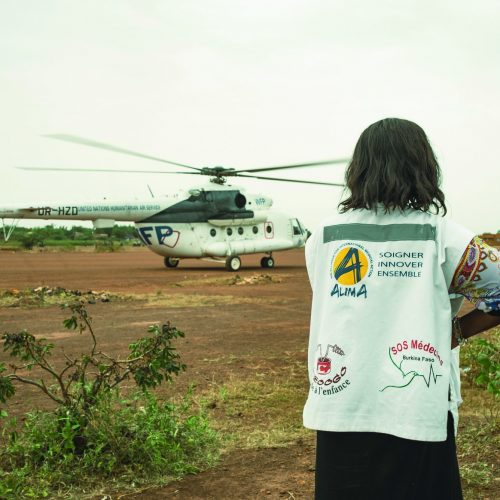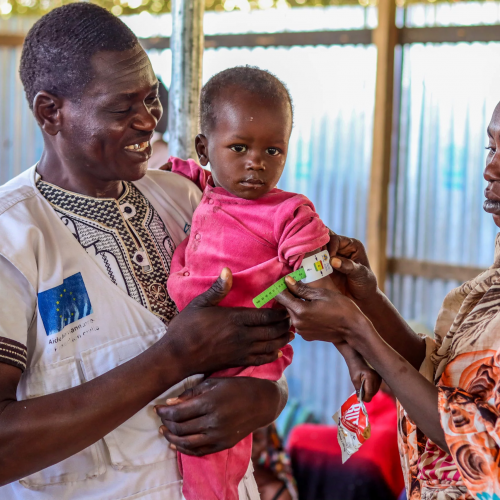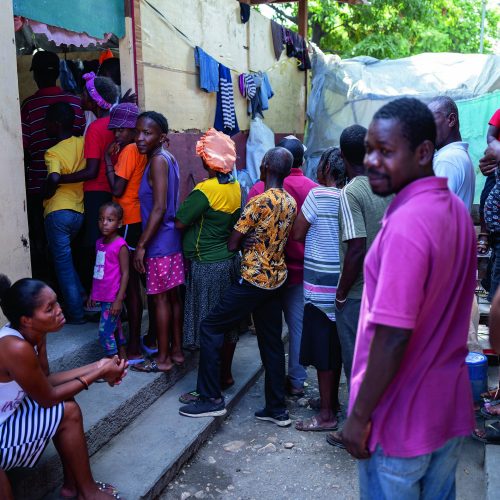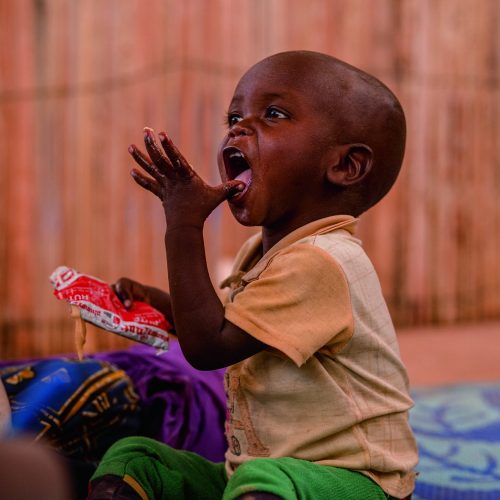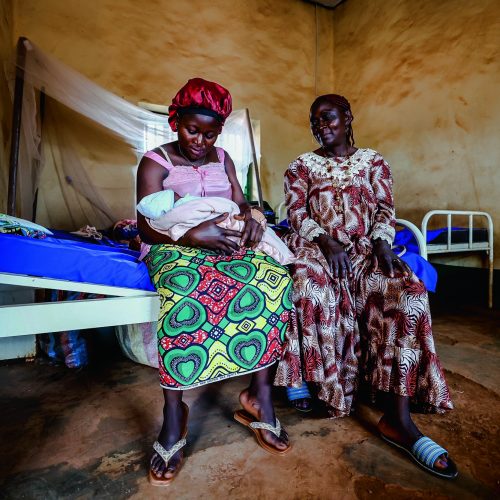Conflict and displaced populations
- 120 million people worldwide are currently displaced due to conflict, persecution, and violence (ECHO, 2024).
- Around 50% of internally displaced people are in sub-Saharan Africa, where prolonged crises exacerbate vulnerability (IDMC, 2023).
- Limited access to healthcare, water, and food in camps and areas of displacement.
To address this major humanitarian crisis, ALIMA is working across several African countries to deliver medical, nutritional, and psychosocial care to displaced populations.
➡️ Protecting the most vulnerable, building resilience, and upholding the dignity of those forced to flee.
Humanitarian context and challenge
A global crisis with dramatic consequences
- The number of forcibly displaced people has more than doubled in a decade, from 41 million in 2010 to 108 million in 2022 (UNHCR).
- Africa remains the hardest-hit region, with 36 million displaced in 2022 (Africa Center for Strategic Studies).
Why does this matter?
- Disruption of health services: hospitals are destroyed, medical staff flee, and there is insufficient health infrastructure.
- Precarious living conditions: lack of access to clean water and sanitation, food, and hygiene.
- Increased risks for women and children: malnutrition, unmonitored pregnancies, gender-based violence, and psychological distress.
- Disease outbreaks: increase in epidemics in camps (cholera, measles, Covid-19).
📌 Conflict and forced displacement drive cycles of vulnerability, increasing the need for humanitarian response.
ALIMA’s action: a comprehensive medical response
💡 How does ALIMA support displaced communities?
In several countries affected by conflict and population displacement, ALIMA deploys multidisciplinary medical teams to provide healthcare adapted to emergency conditions.
🔹Medical and nutritional care
🥣Caring for children suffering from severe acute malnutrition
- Treatment of malnutrition and related complications (malaria, anaemia, respiratory infections).
- Raising awareness among families of healthy nutrition and hygiene habits.
- Distribution of therapeutic food to fight malnutrition.
📌 Thanks to ALIMA’s nutrition programs, thousands of displaced children are saved each year.
🔹Maternal and perinatal health
🤰Follow-up of pregnant women and young mothers.
- Free prenatal and postnatal consultations
- Assisted deliveries to avoid complications
- Access to family planning services
- Care for victims of sexual violence
📌 Essential support to reduce maternal and child mortality in camps and remote areas.
🔹Medical and pediatric emergencies
👶Life-saving treatment for children in crisis
- Management of respiratory infections and common childhood illnesses.
- Emergency care for critically ill or injured children.
- Monitoring of nutritional status and medical monitoring.
📌 Ensuring access to care for displaced children is one of ALIMA’s top priorities.
🔹 Mental health and psychosocial support
🧠 Supporting victims of trauma and violence
- Psychological first aid for conflict survivors.
- Management of post-traumatic stress disorder and chronic stress.
- Psycho-stimulation activities for children.
- Support groups for affected families.
📌 An essential approach to rebuilding lives and preventing long-term psychological impacts.
🔹Vaccination and epidemic prevention
💉 Protecting displaced populations from disease
- Routine immunization for children (measles, polio, diphtheria, etc.)
- Emergency vaccination campaigns against epidemics (measles, cholera, meningitis, Covid-19).
- Strengthening surveillance systems: early detection of disease outbreaks.
📌 ALIMA has vaccinated thousands of displaced individuals in camps across Mauritania and Chad.
Frequently Asked Questions (FAQs)
- They lose access to essential services: health, water, food, housing.
- They suffer from post-traumatic stress due to the violence and losses suffered.
- They lose access to their sources of income, compromising their financial autonomy.
- Burkina Faso
- Mali
- Niger
- Democratic Republic of Congo
- Chad
- Mauritania
- Cameroon
- Haiti
- Sudan
- Nigeria
- Ethiopia
- Donate to fund medical care and supplies.
- Support our vaccination and prevention campaigns.
- Share our actions to raise awareness and amplify the voices of displaced people.
On the ground
Related news
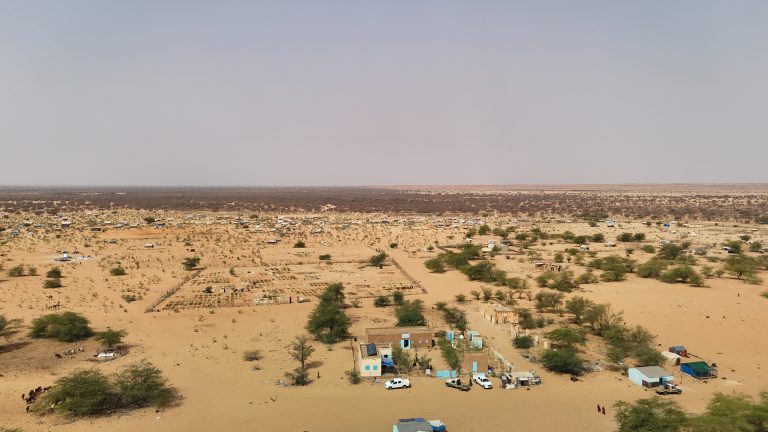
Humanitarian Emergency in Mauritania: “Without support, we will no longer be able to save lives”
For over 13 years, the Mbera camp, located 60 km from the Malian border and over 1,000 km from Nouakchott, has been home to tens
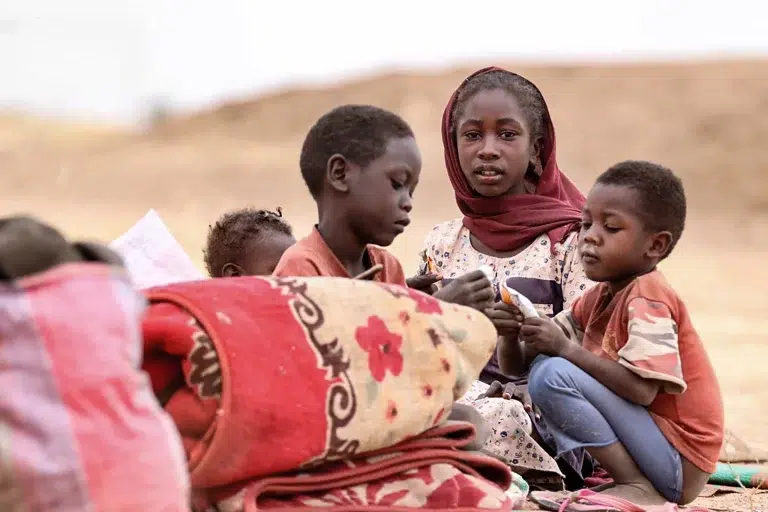
GOAL and ALIMA Deliver Lifesaving Health, Nutrition, and WASH Services Amid Intense Violence in North Darfur, Sudan
Nearly two-thirds of Sudan’s population is in urgent need of humanitarian aid, representing 30 million people, the highest number of people in need ever recorded
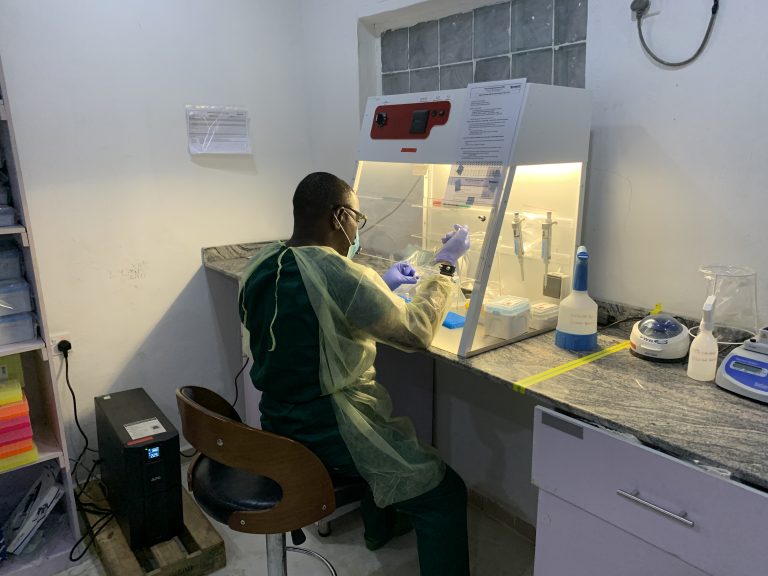
Lassa Fever: ALIMA Strengthens Response in Nigeria with New Treatments
Lassa Fever Peak Hits Nigeria Again; ALIMA, in Partnership with the Ministry of Health and Communities in Owo, Southwest Nigeria, Combats the Disease

